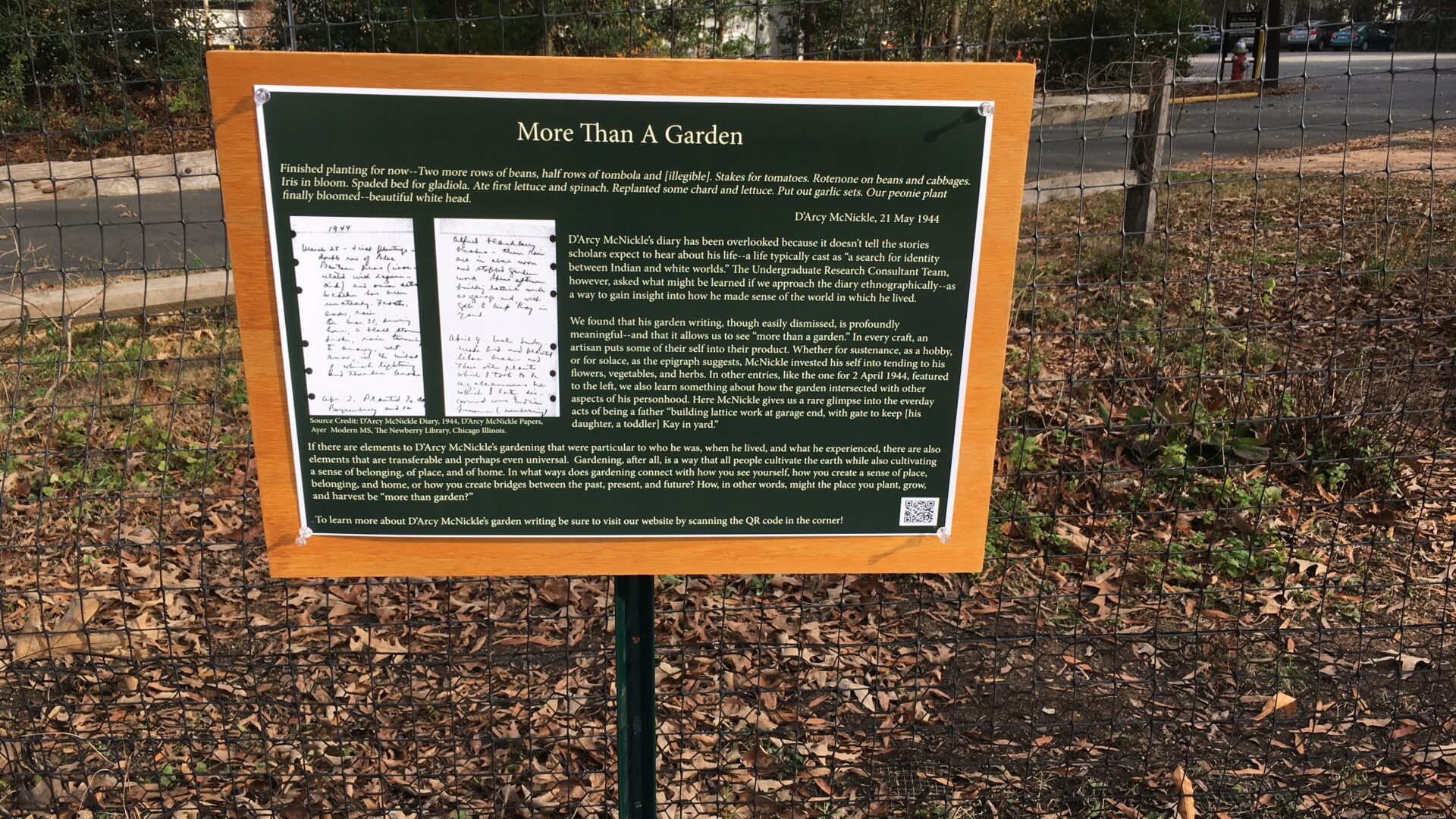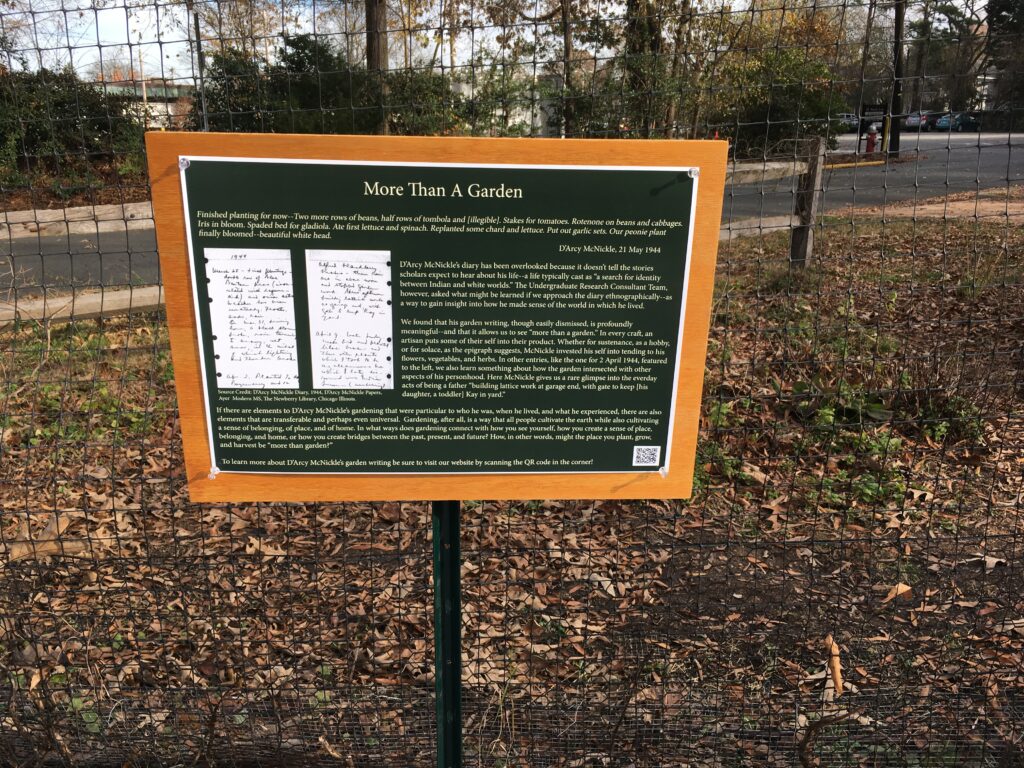More Than A Garden
“Finished planting for now–Two more rows of beans, half rows of tombola and [illegible]. Stakes for tomatoes. Rotenone on beans and cabbages. Iris in bloom. Spaded bed for gladiola. Ate first lettuce and spinach. Replanted some chard and lettuce. Put out garlic sets. Our peonie plant finally bloomed–beautiful white head.” D’Arcy McNickle, 21 May 1944
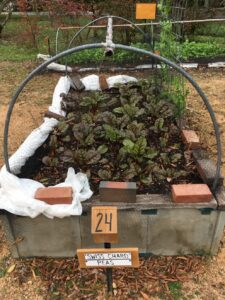
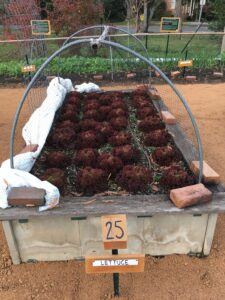
D’Arcy McNickle’s diary has been overlooked because it doesn’t tell the stories scholars to expect to hear about his life–a life typically cast as “a search for identity between Indian and white worlds.” The Undergraduate Research Consultant Team, however, asked what might be learned if we approach the diary ethnographically–as a way to gain insight into how he made sense of the world in which he lived.
We found that his garden writing, though easily dismissed, is profoundly meaningful–and that it allows us to see “more than a garden.” In every craft, an artisan puts some of their self into their product. Whether for sustenance, as a hobby, or for solace, as the epigraph suggests, McNickle invested himself into tending to his 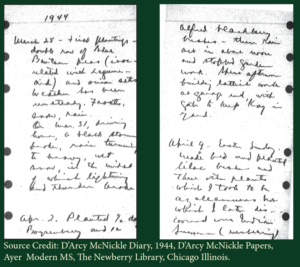 flowers, vegetables, and herbs. In other entries, like the one for 2 April 1944, we also learn something about how the garden intersected with other aspects of his personhood. Here McNickle gives us a rare glimpse into the everyday acts of being a father “building latticework at garage end, with gate to keep [his daughter, a toddler] Kay in yard.”
flowers, vegetables, and herbs. In other entries, like the one for 2 April 1944, we also learn something about how the garden intersected with other aspects of his personhood. Here McNickle gives us a rare glimpse into the everyday acts of being a father “building latticework at garage end, with gate to keep [his daughter, a toddler] Kay in yard.”
If there are elements to D’Arcy McNickle’s gardening that were particular to who he was, when he lived, and what he experienced, there are also elements that are transferable and perhaps even universal. Gardening, after all, is a way that all people cultivate the earth while also cultivating a sense of belonging, of place, and of home.
In what ways does gardening connect with how you see yourself, how you create a sense of place, belonging, and home, or how you create bridges between the past, present, and future? How, in other words, might the place you plant, grow, and harvest be “more than garden?”
Contributors: Eliza Akers, Bud Harrison, Mars Quiambao, and Mikaila Thompson
Original Text: Gabrielle Walton and Professor Dan Cobb
